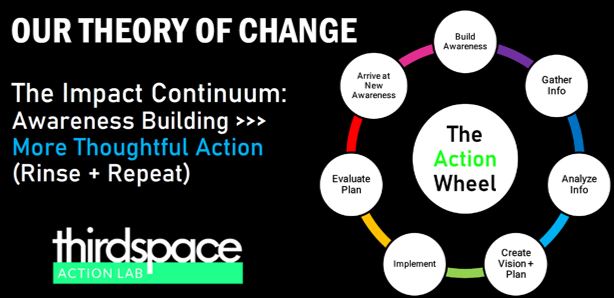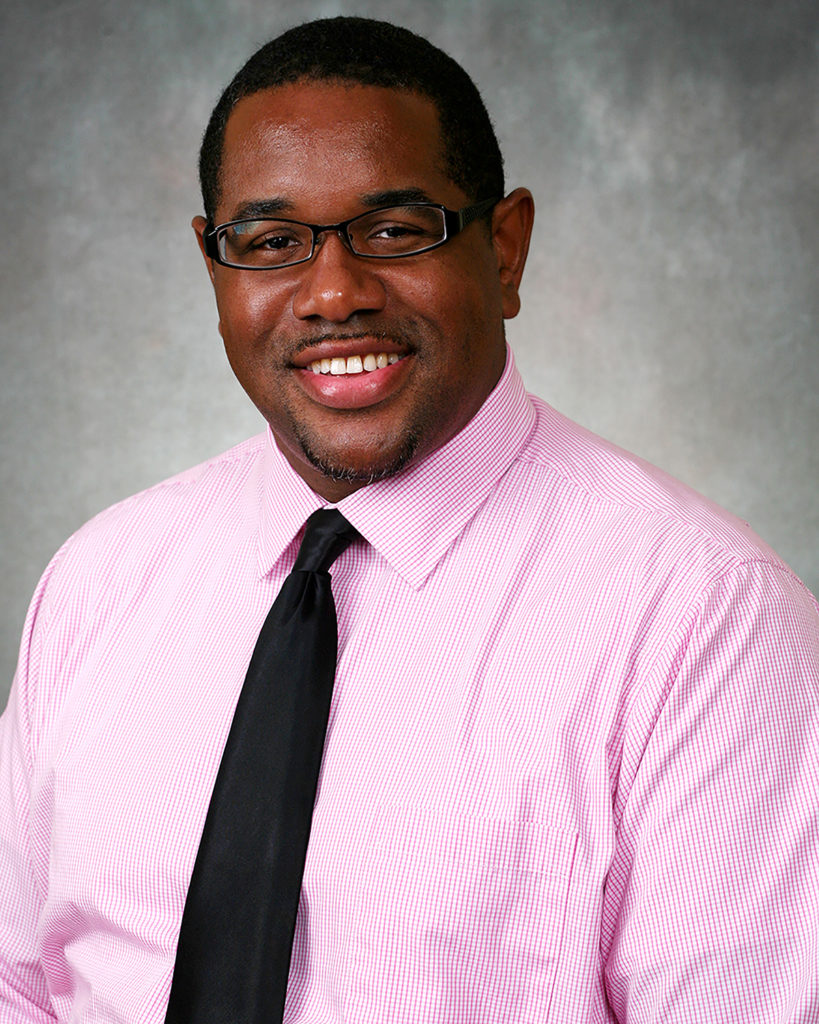By Treye Johnson, Federal Reserve Bank of Cleveland
The work of TFN’s new Inclusive Economies working group began in earnest with the group’s November 2019 inaugural annual meeting in Cleveland. This is the first in a series of guest-authored posts that reflect on key meeting sessions and topics. (Click to see the meeting agenda and read speaker bios.)
Founded on the principle of racial equity, the Inclusive Economies working group is a forum for funders to learn from peer organizations’ experience with race-based initiatives and — importantly examine
— their own relationship to race. Through a workshop led by ThirdSpace Action Lab’s Evelyn Burnett and Mordecai Cargill on The REI Impact Continuum, meeting participants got a firsthand experience with a funder-supported initiative to build racial awareness in Northeast Ohio, and were challenged to articulate their personal commitment to advancing racially equitable systems change in their own communities. In this post, Treye Johnson, regional outreach manager at the Federal Reserve Bank of Cleveland, reflects on the nature of systems change, and what it demands of communities and the people and institutions that lead them.
As many communities — Northeast Ohio included — embark on the journey to address their own deep-rooted, race-based disparities, their efforts immediately meet a host of hurdles. Given the complex nature and sheer enormity of the impacts of structural racism, simply deciding where to start and what the work should look like can feel overwhelming. Further complicating the issue is the fact every person (and organization) has a different level of understanding of racism and race-based disparities, and varying levels of comfort with talking about them. Just as some are energized by the challenge in front of them, others may feel “tired of having this conversation again for the umpteenth time.” So how might those dedicated to racial equity work orient themselves in a way that addresses these challenges, and countless others not named above?
I believe the answer lies with the theory behind ThirdSpace Action Lab’s REI Impact Continuum (see graphic below; click here for their full PowerPoint): Large-scale problems can be solved through a continuous cycle of action and assessment. Start by assessing the current situation. Then diagnose the problem, identify an intervention, implement the intervention, and check to make sure it worked. But here’s the key: you must keep repeating that process until the desired outcome is achieved.

This is not to suggest the Impact Continuum alone is the magic bullet to defeat racism. The problem is too complex; 400+ years of race-based policies and practices cannot be overcome by any single intervention. That means that progress may be slow in some areas and faster in others. It also means that there will be setbacks, and that adjustments will need to be made along the way. But racial equity efforts must acknowledge that this work is long term and make plans accordingly.
So what role might the Federal Reserve System and its Reserve Banks play in the racial equity space? This is the exact question that a recently launched internal Federal Reserve learning community hopes to answer. While each Reserve Bank has its own unique areas of focus, those areas are often ones where race-based disparities are observed—for example, in workforce, education, housing, and small business. As a result, the Reserve Banks could play a vital role in helping to gather data and report on changes in disparities over time. Additionally, Reserve Banks may — and likely will — continue to engage with TFN though the TFN-Federal Reserve Philanthropy Initiative, a long-standing collaboration housed under the IE working group. This partnership, between groups of organizations accustomed to thinking far into the future, could provide valuable and much needed leadership in this space.
About the Author

Treye Johnson is a regional outreach manager at the Federal Reserve Bank of Cleveland. From the Bank’s Cleveland office, he works with the community development team on current and emerging economic and community development issues. Previously, Treye was a program officer at Burton D. Morgan Foundation, a philanthropic organization that provides grants to support entrepreneurship and entrepreneurship education throughout Northeast Ohio. The views expressed are those of the author, and do not necessarily those of the Federal Reserve Bank of Cleveland or the Federal Reserve System.

Great series! Kudos for the idea and work to make it happen.